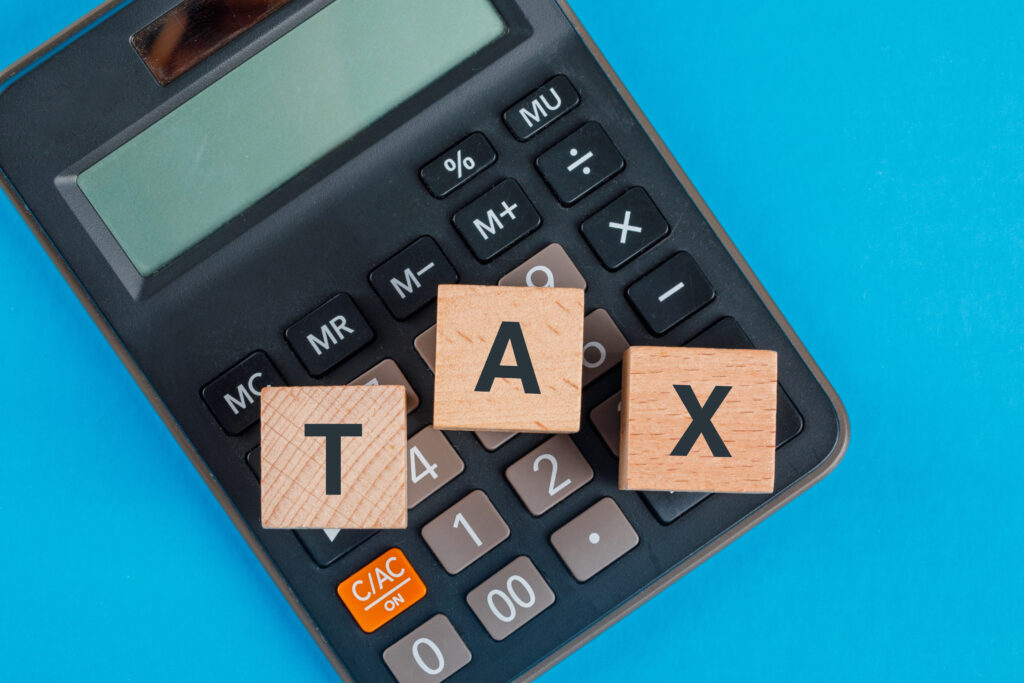In the Aloha State, the Hawaii Department of Taxation (DOTAX) oversees and collects various taxes, including state income tax, withholding tax, and general excise tax. You have the flexibility to pay Hawaii state taxes online, by mail, or in person with cash. However, if you fail to pay or file your return, you will face the Tax Collection Services division.
DOTAX can take significant actions against individuals and businesses who neglect their tax obligations. Fortunately, if you fall behind, the agency offers several solutions to assist you.
Ways to Address Delinquent Taxes in Hawaii
Falling behind on your taxes can happen easily. Whether it’s due to forgetting to file, not withholding enough from your paycheck, or neglecting to set aside taxes for your business, the Hawaii Department of Taxation (DOTAX) offers various programs to help you get back on track.
Choosing the best option depends on your specific situation, and sometimes you may need to use multiple strategies. To ensure you’re making the right choice, consult a tax professional experienced with the HI DOTAX.
Setting Up a Payment Plan
If paying your tax bill in full isn’t feasible, DOTAX may allow you to set up a monthly payment plan. For debts under $10,000, you can apply online or submit Form D-100 via fax to the Department of Taxation. For debts exceeding $10,000, you must contact the department directly.
Typically, if you can pay off the debt within 36 months, the state won’t issue a tax lien, although there are exceptions if tax collection is at risk. It’s crucial to stay current with future tax filings and payments to avoid defaulting on your plan. Any tax refunds will be applied to your balance until it’s fully paid.
Proposing an Offer in Compromise
Hawaii’s Offer in Compromise (OIC) program allows eligible taxpayers to settle their taxes for less than the owed amount, similar to the IRS’s program. You can apply based on:
- Doubt as to Collectibility: You can’t afford to pay the full tax bill and can prove that your offer is the maximum the state could expect to collect.
- Doubt as to Liability: There is genuine doubt that you owe the tax. However, this option is unavailable if you ignored an audit request or if your doubt is based on information that should have been provided during the audit.
- Effective Tax Administration: Exceptional circumstances make it unfair for the state to collect the debt from you.
To apply, submit Form CM-1 (Offer in Compromise) along with Form CM-2 (Statement of Financial Condition and Other Information for Individuals) or Form CM-2B (Statement of Financial Condition and Other Information for Corporations, Partnerships, etc.). You must also make a downpayment—20% for a lump-sum offer or the first monthly payment for an installment offer.
Requesting Penalty Abatement
DOTAX may waive penalties if they were incurred due to reasonable cause, such as circumstances beyond your control that led to late payment or filing. Penalty abatement is not available for reasons related to negligence or carelessness.
Applying for Hardship Status
If DOTAX’s collection actions are causing financial hardship, you may qualify for relief. The department will cease collection efforts if you can demonstrate that paying the tax or the collection action (e.g., wage garnishment) is causing you financial hardship. However, Hawaii’s criteria for financial hardship are stringent, typically only providing relief if the tax debt prevents you from covering basic living expenses.
What Are the Consequences of Failing to Pay Taxes in Hawaii?
Failing to pay your state taxes in Hawaii leads to significant penalties and interest on your outstanding balance. If you don’t pay voluntarily, the state can enforce collections through tax liens, wage garnishments, or asset seizures. Here’s a detailed look at the consequences of not paying your state taxes.
Penalties and Interest
Failing to file a Hawaii state tax return results in a penalty of 5% of the tax due, assessed monthly, up to a maximum of 25% of your balance. For example, if you owe $10,000, your penalty will be $500 per month until you file or until the penalty reaches $2,500. Additionally, interest accrues on your account from the payment due date until you pay. The interest rate is ⅔ of 1% per month.
Hawaii state tax returns are due on April 20th, five days after the federal return due date. If you request a federal extension, you must also request a state extension separately, which only extends your filing time, not the payment due date. Payment remains due on the original date.
Tax Liens
Hawaii can issue a tax lien for unpaid taxes, securing the state’s interest in your debt and attaching it to all your assets. With a lien, the state can claim proceeds from any assets you sell. Liens complicate obtaining loans against your assets, as lenders cannot use property with existing liens as collateral. Generally, if you owe less than $10,000 and set up payments to clear the balance within three years, the state may refrain from issuing a lien. However, exceptions exist.
Wage Garnishment
If you don’t pay delinquent taxes, the state can garnish your wages, also known as a wage levy. The Department of Taxation will notify your employer to withhold 25% of your paycheck and send it to the state. This garnishment remains until your tax debt, including interest and penalties, is fully paid. You can request relief if the garnishment hinders your ability to meet basic living expenses.
Asset Seizure
For unpaid taxes, the Department of Taxation can seize your personal or business property, provided they send proper notices. However, certain assets are exempt from seizure, including personal clothing, school books, fuel provisions, furniture, personal effects, tools of the trade, unemployment benefits, and undelivered mail. Importantly, your primary residence is not exempt, meaning the state and the IRS can seize your home for unpaid taxes, though this is rare.
Ignoring state tax obligations in Hawaii leads to severe consequences, but understanding these potential outcomes can help you take timely action to avoid them. Ensure you address any tax debts promptly to prevent penalties, interest, and enforced collections.
What If Your Spouse’s Tax Liability Affects You in Hawaii?
In cases where you believe the tax liability is due solely to your spouse or ex-spouse’s actions, you may be able to get relief through Hawaii’s innocent spouse program. For instance, this may happen if you receive a tax assessment due to income earned by your spouse that you didn’t know about and that wasn’t reported on your tax return. This relief can significantly reduce your financial burden and help you avoid paying taxes you are not responsible for.
To apply for relief, file Form N-397 (Request for Innocent Spouse Relief and Separation of Liability and Equitable Relief). You must apply within two years of the time the department first started to collect the tax. Acting promptly can improve your chances of success, so gather all necessary documents and evidence as soon as possible.
Hawaii has very similar qualifying criteria as the IRS, and when you apply, you must include a copy of your application for IRS innocent spouse relief. Qualifying for this program requires a strong knowledge of the tax code. You may want to work with a tax professional. They know what the department wants to hear, and they can provide guidance to help you be successful with your claim. A professional can also ensure that all paperwork is correctly filed and deadlines are met.

Steps to Appeal a Tax Assessment in Hawaii
You have the right to appeal a tax assessment or a denial of a refund. This appeal must be filed within 20 days of the mailing date of the Proposed Notice of Assessment or within 30 days of the mailing date of the Final Notice of Assessment. Should you disagree with the decision on your appeal, you have 30 days to take your case to the tax appeal court. If the court’s decision is not in your favor, you can further appeal to the Appellate Court within 30 days of the decision.
If you miss the window to appeal a final assessment, you may pay the tax under protest and then file an action in tax appeal court to recover the payment. This must be done within 30 days of making the payment. The appeals process in Hawaii is very particular and adheres to strict deadlines. To navigate this complex process effectively, consider working with a tax professional. CPAs, enrolled agents, and tax attorneys can represent you in front of the IRS and state tax agencies. Additionally, keeping thorough records and documentation can significantly strengthen your appeal. Understanding the specific requirements and timelines is crucial to a successful tax appeal.

Understanding the Statute of Limitations for Tax Collection in Hawaii
Hawaii imposes a 15-year statute of limitations on tax collection, meaning the state has 15 years to collect taxes once they are assessed. However, in practice, the state can sometimes take longer to collect certain tax debts. If a tax lien is issued before the statute expires, the lien can survive beyond the 15-year period, allowing the state to pursue unpaid tax bills for a much longer time.
Furthermore, certain actions can toll (pause) the statute of limitations. For example, applying for an offer in compromise will stop the clock, with the paused time added to the end of the 15-year period. Additionally, leaving the state for more than six months can also toll the statute. Understanding these nuances is crucial for managing your tax obligations effectively.

A Guide to Hawaii’s General Excise Taxes
Many businesses in Hawaii struggle with their tax obligations due to a lack of understanding of the state’s general excise tax system. Unlike sales tax structures that place the tax burden on the customer, Hawaii’s excise tax requires the business to pay based on its gross income. While businesses can sometimes pass this tax on to customers, it is not always possible.
This difference can catch businesses off guard, especially those used to traditional sales tax systems. To stay compliant, it’s essential for businesses to familiarize themselves with how excise taxes work and ensure they are properly accounted for in their pricing and financial planning.
Conclusion
In addressing unpaid taxes in Hawaii, it’s crucial to understand the available relief options and their potential impacts. The Hawaii Department of Taxation (DOTAX) provides several avenues for managing delinquent taxes, including setting up payment plans, proposing an Offer in Compromise, requesting penalty abatements, and applying for hardship status. By engaging with DOTAX and exploring these options, you can work towards resolving your tax issues and minimizing the adverse effects on your financial situation. Professional guidance can play a significant role in navigating these complex processes effectively.
For those struggling with tax issues, Tax Resolution Services of Hawaii offers expert assistance in managing your tax liabilities and finding appropriate solutions. Whether you need help with appealing tax assessments, understanding the statute of limitations, or dealing with general excise taxes, these services can provide the support and expertise required to address your concerns. By leveraging such resources, you can take proactive steps to resolve tax issues and achieve financial stability.
Frequently Asked Questions
1. What should I do if I can’t pay my Hawaii state taxes in full?
If you’re unable to pay your Hawaii state taxes in full, you may qualify to set up a monthly payment plan with the Hawaii Department of Taxation (DOTAX). For debts under $10,000, you can apply online or via Form D-100. For amounts over $10,000, you will need to contact DOTAX directly. Ensure you stay current with future filings and payments to avoid defaulting on your plan.
2. How can I reduce my tax debt through an Offer in Compromise (OIC)?
Hawaii’s Offer in Compromise (OIC) program allows you to settle your tax debt for less than the full amount owed if you meet certain criteria. You can apply based on doubt as to collectibility, doubt as to liability, or effective tax administration. To apply, submit Form CM-1 along with the relevant financial statements and a down payment. It’s important to provide all required documentation and work with a tax professional if needed.
3. What is penalty abatement, and how can I request it?
Penalty abatement is a process where DOTAX may waive penalties incurred due to reasonable cause, such as circumstances beyond your control. To request penalty abatement, you need to demonstrate that the penalties were due to factors you could not control, rather than negligence or carelessness. Submit a written request explaining your situation to DOTAX for consideration.
4. How does Hawaii handle financial hardship related to tax collection?
If DOTAX’s collection actions are causing you financial hardship, you might qualify for relief by demonstrating that paying the tax or dealing with collection actions severely impacts your ability to meet basic living expenses. You must provide detailed evidence of your financial situation to qualify for this relief, as Hawaii’s criteria are quite stringent.
5. What are the consequences of not paying state taxes in Hawaii?
Failing to pay state taxes in Hawaii can result in severe consequences, including penalties, interest, tax liens, wage garnishments, and asset seizures. Penalties accrue at 5% of the tax due per month, up to 25%, and interest accumulates from the payment due date. The state may also enforce collections through liens, garnishing wages, or seizing assets.
6. Can I appeal a tax assessment or denial of a refund in Hawaii?
Yes, you can appeal a tax assessment or denial of a refund. Appeals must be filed within 20 days of receiving the Proposed Notice of Assessment or within 30 days of the Final Notice of Assessment. If necessary, you can further appeal to tax appeal court or the Appellate Court. It’s advisable to work with a tax professional to ensure compliance with deadlines and strengthen your appeal.
7. How long does Hawaii have to collect unpaid taxes?
Hawaii has a 15-year statute of limitations to collect unpaid taxes once they are assessed. However, certain actions, such as applying for an offer in compromise or leaving the state, can toll (pause) the statute. This means the state can sometimes pursue tax debts beyond the 15-year period if a lien was issued before the statute expired.
8. What should businesses know about Hawaii’s general excise tax?
Unlike traditional sales taxes, Hawaii’s general excise tax is levied on a business’s gross income. Businesses are responsible for paying this tax and may pass it on to customers, though this isn’t always feasible. Businesses need to understand how this tax operates and ensure it is accounted for in their pricing and financial planning to remain compliant.

